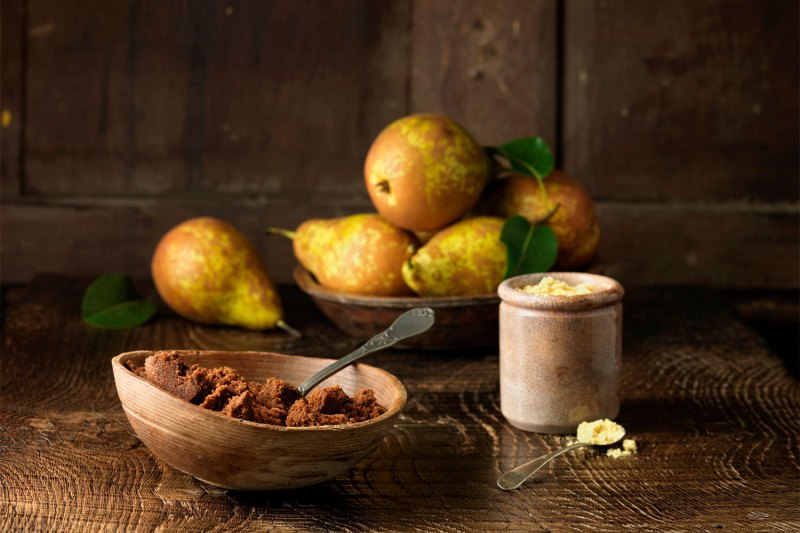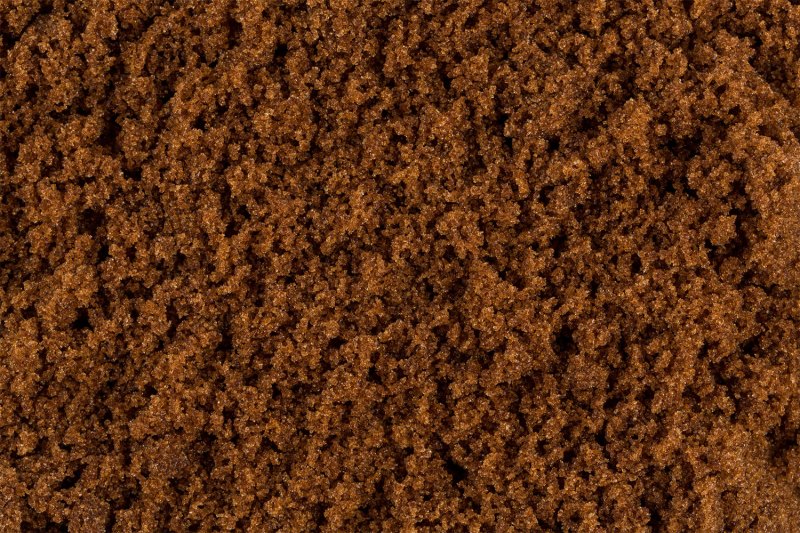There’s much more to sugar than the vast sea granulated white crystals. The sweet stuff comes in all shapes, sizes, flavors, and strengths. In fact, it’s not even always that sweet.
Mucsovado is a type of cane sugar, dark-hued in color with a molasses-like flavor. It tends to have a high moisture content, and is damp and sandy to the touch. It’s unrefined and the molasses is not removed, per common sugar. The flavor profile is usually described as bittersweet, with flickers of dried fruit, toffee, and a little earth. If you’re thinking it would do great with whiskey, you’re right, and we’ll get there.

How is it used? For all kinds of things, from marinades and barbecue sauces to mixed drinks. It can add depth to a mint julep or some smokiness to an old fashioned. Anthony Baker, an independent beverage consultant and educator, likes to use muscovado in drinks that involve things like whisky, añejo tequila, and brandy. Baker is the Beverage Director at Wayla in New York and also works for the likes of Liquor Lab and Momentum Mixology.
“It makes for a thick and creamy syrup that I typically use for cocktails that require aged spirits,” he says. “Although it’s great for low-ABV cocktails like whiskey sours, I find that it’s best for spirit-forward cocktails like an old fashioned. This way, the character of the sugar helps to enhance the character of the aged spirit.”
Muscovado is available all over the globe, but its production is especially prominent in places like India and Colombia. It’s also big in the Caribbean, where it’s used in a variety of dishes, not just drinks. There’s a lighter version and a darker version, the latter offering a unique punch of bitterness.
Try it atop some cookies (chocolate chip or gingerbread) or with your next batch of French toast. It adds a whole extra layer to a breakfast bowl of granola, yogurt, and fresh fruit. And it’s great with indulgent sweets like Creme Brulee. More than a dessert add-on, muscovado is also great in various sauces, atop popcorn, in salad dressings, and as part of rich glazes to be applied on meats and hearty vegetables.

If you can’t get your paws on muscovado, there are other options. Some even claim to be healthier as well (muscovado has about the same amount of calories as granulated sugar, but also touts more in the way of mineral content). Reza Setayesh is the chef and proprietor of Baba Nahm and BimBeriBon in Asheville. His eateries celebrate wholesome, worldly cuisine. While he appreciates the raw brown sugar otherwise known as muscovado, he’s gone a different but sibling direction in the name of health.
“Currently I use lots of coconut sugar which is very similar to muscovado in flavor and texture,” he says. “The only reason I’ve backed away from using muscovado so much is due to the glycemic index, which happens to be fairly similar to sucrose or sugar. Sucrose is at 65 where coconut sugar is 35 which happens to be much better for you.”


